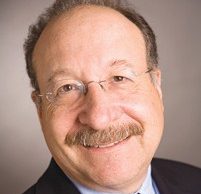
Henry Dubroff
When the watchdogs become the sleeping dogs, bad things happen.
And that appears to have been the case with the California Public Utilities Commission and its oversight of PG&E and Southern California Edison, particularly under the 12-year term of recently departed PUC President Michael Peevey.
What’s particularly galling about the current scandal is that Edison in particular has so badly bungled the basic blocking and tackling that comes with delivering electricity to the Central Coast, a small but influential part of its territory.
As reported earlier, power outages got so terrible last year that a group of businesses mounted a protest movement. Edison has suddenly found a few million dollars to patch together a solution, but really rebuilding the entire subsystem in Santa Barbara and parts of Ventura counties is probably the better solution.
Let’s not forget that the power received by a good portion of the region runs through something called “paper insulated lead conduit” or PILC. Some of that was installed when Herbert Hoover was president and much of it dates to the Franklin Delano Roosevelt era.
Efforts to provide funding to replace the PILC with something more modern have faltered year after year while the brass went off on wild spending sprees.
But instead of getting South Santa Barbara County and West Ventura County out of the Third World, Edison has had other priorities.
These days, California officials are poring over thousands of emails between PUC staff and PG&E officials to see if there were any improprieties in how the PUC handled its investigation of the deadly explosion in San Bruno.
Last month the state attorney general’s office conducted a search of Peevey’s home, carting away his personal computer memory devices and notes written on letterhead from the Hotel Bristol in Warsaw, Poland. That’s where Edison entered the probe in a big way.
The latest furor concerns the fact that Peevey apparently had a 30-minute chat with retired Edison President Stephen Pickett while both were attending a conference in Poland.
The topic likely was efforts to restart the crippled San Onofre nuclear plant, and news of the overseas meeting sent off a firestorm of criticism about the PUC’s subsequent decision over how to split paying for the closure of San Onofre between ratepayers and investors.
The problem with San Onofre dates back years to when a plan to replace steam generators and steam lines resulted in a failure that permanently crippled the plant. Ratepayers will contribute some $5 billion to the plant’s decommissioning, a fact that has the consumer activist community hopping mad.
Peevey also is a former president of Edison and decided to step down when his second six-year term ended last year. For much of that time, Edison was known around the Central Coast for dragging its feet when it came to industrial-scale solar projects and fundamental improvements to the electric power supply.
In addition to San Bruno, PG&E has faced a big challenge in completing seismic studies to demonstrate that it can safely operate the Diablo Canyon nuclear plant. PG&E brass has wisely hit the pause button on an effort to extend the operating licenses on Diablo Canyon’s two reactors while the studies are being concluded.
The bottom line here is that electricity really matters. And in a wired world where technology drives so much of our economic future, it really, really matters.
It should not be terribly difficult to operate a utility company — even two that are as complicated as Edison and PG&E. Nor should it be terribly difficult to regulate them.
That is, unless, the regulators lose sight of their fundamental responsibility — to make sure the lights stay on at a price that makes sense in a way that is safe for all.






 Print
Print Email
Email

















